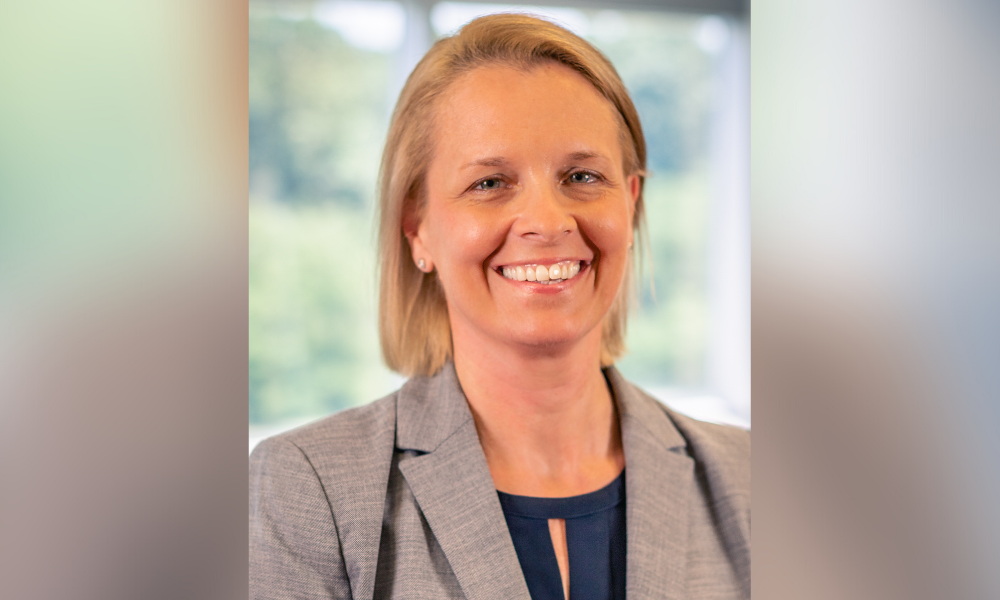Outlook on rates, inflation, home prices, tech, non-QM…and the future of originators

2021 saw quite a few records being broken in the US mortgage industry, despite the ongoing threat of the COVID pandemic hanging over the economy.
Record home appreciation resulted in property increases of more than 18% year over year, which was good news for investors and anyone who wanted to sell their property, but less so for first-time buyers and those looking for an affordable home.
Inevitably, with interest rates also at a record low - at least during the first half of the year – brokers found the ‘low hanging fruit’ of refinance loans irresistible (according to data analytics firm Black Knight, more than 14 million homeowners refinanced during the pandemic).
Foreclosures and repossessions also reached a record low, putting to bed fears that there would be a tsunami of these once the moratorium and relief programs ended.
This year promises to be an equally eventful one. With the number of self-employed people set to continue rising and with refinance originations expected to drop by 62%, the resurgence of non-QM looks unstoppable.
The adoption of technology will also continue its unrelenting pace.
Read more: Originators - going the way of the Dodo?
But there are clouds on the horizon. The buzzwords currently doing the rounds are ‘margin compression’ and ‘company mergers’ – the aftermath and the response to soaring inflation, rising interest rates and the ongoing shortage of homes. All this could have a knock-on effect on jobs in the industry as companies seek to reduce costs.
Meanwhile, prospective homebuyers might still prefer to buy a property rather than rent one, given that the median cost of renting skyrocketed to never-before-seen levels, in some areas by almost 20%.
Read more: Mortgage delinquency rates drop for seventh straight month
MPA asked Kirk Tatom, president of Tatom Lending; Yury Shraybman, a broker at Innovative Mortgage Brokers; Jodi Hall, president of Nationwide Mortgage Bankers; and Dalton Elliott, director of sales at Lima One Capital for their views on what they think might happen in the mortgage space over the coming 12 months.
ON INTEREST RATES:
“The Federal Reserve signaled four rate hikes, but I think they’ll probably do three - it’s going to put a lot of strain on the economy, although I’m more concerned about how they’ll wind down quantitative easing.”
Kirk Tatom (pictured top)

“The concern is not much about the rate hike, because between 3% interest rate and 3.5% interest rate is only $69 a month (for an average loan), but more with the announcement by the FHFA about additional adjustments for people purchasing second homes. That’s a difference of half a percent on an average loan amount of about $250,000. When it comes to purchases, I don’t really think that will deter people, but on the refinance side, it will do a little bit of a dent in that pipeline.”
Yury Shraybman (pictured immediately above)

“The difference between 3% and 4% is a meaningful difference in monthly payments and affordability to a lot of people. (Brokers) have to be more strategic and more creative around these cycles, because it’s all cyclical, and we’re going to get back to a low-rate environment. The mortgage industry is still going to be perfectly fine because only a number of years ago, we were riding debt at that level.”
Dalton Elliott (pictured immediately above)
ON HIGH RENTS:
“As far as the mortgage market goes, the increases in rent are positive - it’s my number one indicator. I just closed on a home yesterday, she was paying at $2,200 a month in rent and now she’s getting a nice little three-bedroom, two bath house in a nice neighborhood with a yard. She’s paying about $2,150 a month, but on top of that she can now write off her interest and her property taxes. It’s a big win for her and a big step up.”
Kirk Tatom
ON INFLATION:
“Inflation is at a 40-year high…and is going to wear everybody out. You’re going to get into a situation where wages are rising but they’re being outpaced by inflation, so people are actually losing money every day. If you’re losing purchasing power, then you’re far more likely to turn to credit, but the more payment you have on that credit card, the bigger the squeeze on the debt-to-income ratio.”
K. Tatom
“Inflation is a big concern, and over the last couple of months, inflation numbers have gone up significantly. We feel it on our everyday lives, going to the supermarket or buying things – everything is costing a lot more money.”
Yury Shraybman
ON THE FUTURE OF ORIGINATORS AND TECH:

“The role of a loan officer is not the collecting of papers or even selling up terms; it’s the relationships that they build with their referral partners and clients. Loan officers need to be open minded to allow technology to do the pieces that aren’t based on relationships…to be able to have more purposeful driven conversations and relationship building with their clients and referral partners.”
Jodi Hall (pictured immediately above)
“The broker should evaluate the individual’s financial goals, look at the overall picture and not just be a pencil pusher. It’s not just about advising the borrower on the best type of loan, but about having a long-term relationship with them. If the broker does this, nothing really changes. The brokers that haven’t been looking at that, and who have only been looking at volume, might be the ones that are affected.”
Yury Shraybman
ON NON-QM:
“We’re moving away from a refinance market to a purchase market only. You throw in rising interest rates and now everybody’s either bumping down a bit, or they’re having to find alternative lending opportunities, like non-QM - and I see big growth in the non-QM sector this next year.”
Kirk Tatom
ON HOME PRICE APPRECIATION:
“I think we’re going to see the home prices move upward. And we’re going to see the whole mortgage market as a whole slow down.”
Kirk Tatom
“I don’t see a world where rates increase and prices stay the same, because it just boils down to consumer affordability, and inflation is also hitting everybody’s pockets. It may even pull values back a little bit in a lot of markets.”
Dalton Elliott
OUTLOOK:
“I think there’s going to be plenty of business. There are always people that have to move, need to move, want to move. the demand is still really high. People aren’t going to spend as much, or you’re going to see an increase in debt with people turning to credit more to purchase the things they want or need. But you can’t outdo supply and demand and economics.”
Kirk Tatom
“When COVID hit, everybody’s fear in the mortgage industry was of a repeat of 2008 and that there was going to be a crash. But it didn’t happen, because 2008 was related to foundational structural issues in our housing industry. You had widespread fraud, you had folks getting into complex products without appropriate disclosures. COVID was not a real estate thing, it was a health care crisis.”
Dalton Elliott
“A lot of people are thinking that this is a bubble and that there’s going to be a 2008-type collapse. The difference is that this is completely different. The 2008 collapse was mainly due to the mortgage market - a lot of bad loans and everybody qualifying for a loan. The reason why prices are so high is because we have very limited supply and very high demand.
“The industry is definitely changing and there’s definitely going to be margin compression. Volume is going to slow down, and I think that there are going to be company mergers. Technology will also have an impact on the economy. Companies can work at a smaller profit margin and still be very, very competitive, and we can be more competitive because technology makes things quicker, easier and cheaper than before.”
Yury Shraybman



